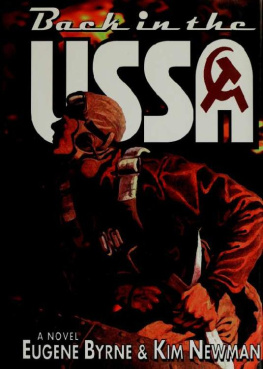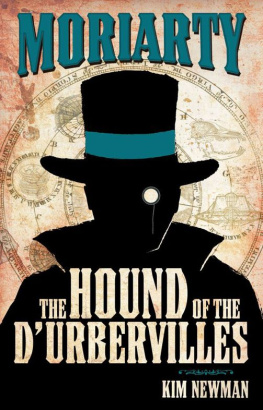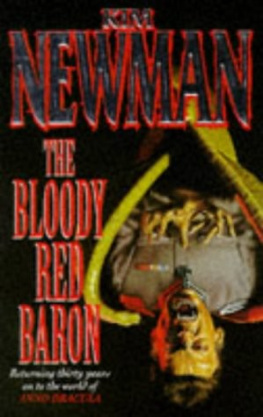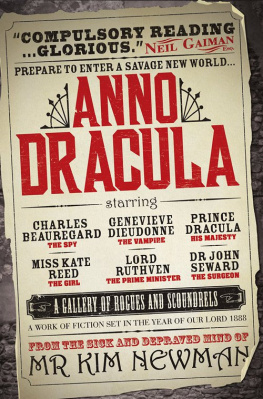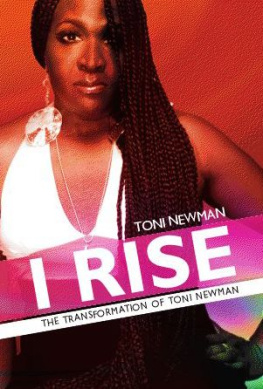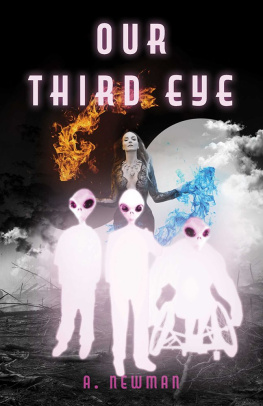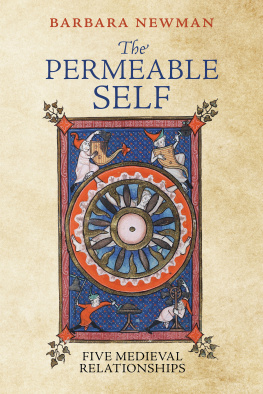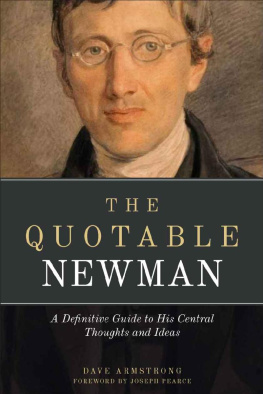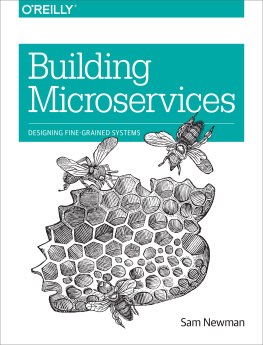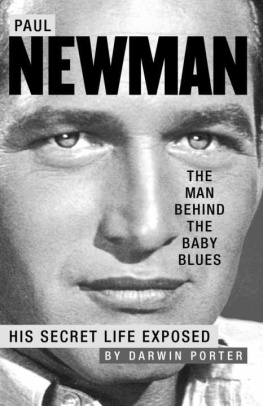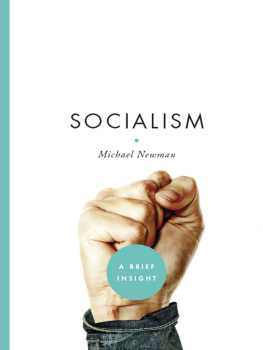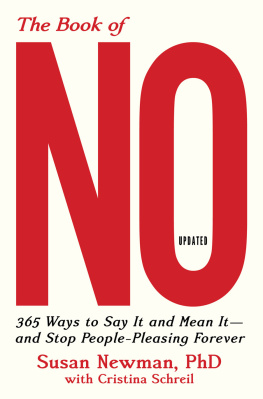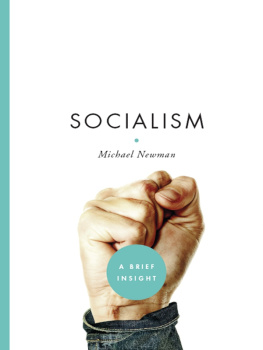Kim Newman - Back in the USSA
Here you can read online Kim Newman - Back in the USSA full text of the book (entire story) in english for free. Download pdf and epub, get meaning, cover and reviews about this ebook. year: 1997, publisher: Mark V. Ziesing Books, genre: Detective and thriller. Description of the work, (preface) as well as reviews are available. Best literature library LitArk.com created for fans of good reading and offers a wide selection of genres:
Romance novel
Science fiction
Adventure
Detective
Science
History
Home and family
Prose
Art
Politics
Computer
Non-fiction
Religion
Business
Children
Humor
Choose a favorite category and find really read worthwhile books. Enjoy immersion in the world of imagination, feel the emotions of the characters or learn something new for yourself, make an fascinating discovery.
- Book:Back in the USSA
- Author:
- Publisher:Mark V. Ziesing Books
- Genre:
- Year:1997
- Rating:4 / 5
- Favourites:Add to favourites
- Your mark:
- 80
- 1
- 2
- 3
- 4
- 5
Back in the USSA: summary, description and annotation
We offer to read an annotation, description, summary or preface (depends on what the author of the book "Back in the USSA" wrote himself). If you haven't found the necessary information about the book — write in the comments, we will try to find it.
Back in the USSA — read online for free the complete book (whole text) full work
Below is the text of the book, divided by pages. System saving the place of the last page read, allows you to conveniently read the book "Back in the USSA" online for free, without having to search again every time where you left off. Put a bookmark, and you can go to the page where you finished reading at any time.
Font size:
Interval:
Bookmark:
ACKNOWLEDGMENTS
For support, advice, inspiration, etc.
Tom Tunney for lots of technical help on planes and Newcastle; David Pringle for publishing the stories in Interzone and on one occasion giving us half the magazine; to Brian Smedley for letting us pick his brain on all sorts of collapse-of-communism issues, and for taking us on a dream holiday to the Czech Republic; Alex Dunn for being there a lot of the time when we were talking about these stories; Meg Davis for moral support; Monique Brocklesby for cooking and hoovering (but not ironing); Martina Drnkova for demonstrating that absinthe and cricket are not mutually exclusive; Paul J. McAuley for snickering; Harlan Ellison for letting himself appear; Sergei Paradjanov for heroism and style; Maura McHugh for being there; Cindy Moul for make-up; Pat Cadigan, for leaving Kansas; Mark V. Ziesing for not caring how many Americans have heard of The Likely Lads. We also owe a small debt to Vaclav Havel, whom history will judge one of the greatest figures of the 20th century, for giving us the idea in the first place.
For characters we've sampled and re-mixed
Eddie Albert, Robert Aldrich, Robert Altman, Raymond Allen, Sir Kingsley Amis, Gerry Anderson, Sylvia Anderson, Edwin Apps, Dan Aykroyd, Peter Barnes, James Warner Bellah, John Belushi, Robert Bloch, Humphrey Bogart, John Boulting, Malcolm Bradbury, David Bradley, Bernard Bresslaw, Norman Brooks, Anthony Buckeridge, James Cagney, Michael Caine, Ian Carmichael, John Carradine, Sir Charles Chaplin, Ronald Chesney, Julie Christie, Brian Clemens, Dick Clement, James Coburn, Francis Ford Coppola, John Russell Coryell, Nicholas Courtney, Tom Courtenay, Michael Crawford, David Croft, Richmal Crompton, Windsor Davies, R.F. Delderfield, Pauline Devaney, E.L. Doctorow, Michael Dobbs, Sergio Donati, Michael Douglas, Harry Driver, Paul Eddington, Lee Ermey, WC. Fields, Albert Finney, F. Scott Fitzgerald, Ian Fleming, Henry Fonda, Peter Fonda, John Ford, Bill Fraser, Willis Goldbeck, Julie Goodyear, Maxim Gorki, Andy Griffith, Walon Green, Davis Grubb, Alan Hackney, Mervyn Haisman, Willis Hall, Earl Hamner Jr, Thomas Harris, Gustav Hasford, Joseph Heller, Marc Hellinger, Michael Herr, Patricia Highsmith, Nat Hiken, Barry Hines, Mike Hodges, Anthony Hope, Dennis Hopper, Norman Hudis, John Huston, David Jacobs, Anthony Jay, Joseph Kesselring, Stephen King, Walter Koenig, Dorothy M. Johnson, Ian La Frenais, John Landis, Charles Laughton, Henry Lincoln, Sergio Leone, Ira Levin, Sinclair Lewis, Ted Lewis, Ken Loach, Jonathan Lynn, David McCallum, Patrick MacNee, Herman Mankiewicz, Derek Marlowe, W Somerset Maugham, John Milius, Robert Mitchum, David Morrell, Jack Palance, Boris Pasternak, Sam Peckinpah, Jimmy Perry, James Poe, Roman Polanski, Melville Davisson Post, Vince Powell, Frederic Raphael, Ian Richardson, Diana Rigg, Tim Robbins, Gene Roddenberry, Peter Rogers, Sam Rolfe, John Schlesinger, Charles G. Schultz, Ronald Searle, Antony Sher, Alan Sillitoe, Phil Silvers, Jack Smethurst, Ormond G. Smith, Terry Southern, John Steinbeck, James Stewart, Oliver Stone, Booth Tarkington, Gerald Thomas, Richard Thomas, Jim Thompson, David Thomson, Leo Tolstoi, Robert Towne, B. Traven, S.S. Van Dyne, Luciano Vincenzoini, Rudolph Walker, Raoul Walsh, Tony Warren, Keith Waterhouse, Colin Welland, Orson Welles, William Wharton, Geoffrey Williams, Ronald Wolfe.
To Monique EB To Maura KN
'What a country! Afraid of
Debs and proud of Dempsey!
It's too silly."
George Bernard Shaw
IN THE AIR
fc
1989
The PPC had offered to send an official car to the hotel, but he decided he'd rather walk. He would learn more from a stroll among the bustle of ordinary America than a cruise in a Detroit Streetmaster with a Party Suit.
Getting It Together might be in progress, but there were still long, impatient queues outside the grocery stores. Straight Talking might be the buzzword, but there were still only Party papers Newsweek, Workboy, MAD on the newsstands. It was chilly, and everyone was hurrying, thin overcoat collars turned up against the windblast. This was a busy city, with no time to lose. Very different from the London Lowe had left two days ago. There, it had been Autumn; here, Fall had fallen, and it was Winter. He was breathing dirty ice-chips. He had been coughing off and on since the plane touched down at Hillquit Field. In the industrial USSA, you could always taste the air. There was already a light dandruff of snow, soon the glaciation level would sweep across Lake Michigan and the city would be like Reykjavik or Petrograd, carpeted with filthy slush. All Americans were equal, but those here with bearskin hats and gloves had a bitterly resented edge.
He came off Michigan Avenue, into Alphonse Capone Plaza. Soon, unless he misjudged First Secretary Vonnegut, to be renamed Something Else Plaza. He looked up at the triumphal statue, and wondered how long it would last. Apart from anything else, it was monumentally ugly. No larger than the Hindenburg Zeppelin, the bronze depicted a slimmer-than-the-newsreels Al on a rearing steed, riding down Robber Barons like Buffalo Bill pursuing Apaches. The bloated, top-hatted figures
B
Back in the USSA
crawling away from the horse's hooves were grotesque caricature Vanderbilts, Rockefellers and Fords, weighed down by moneybags and jewellery. Over the last few years, the equestrian Al had taken a few dents but, ironically, the nearby stone statue of another former mayor, an obscurity named Daley, had been much more extensively vandalised. That must say something about the relative values of Chicagoans.
Chicagonot New York or Los Angeles or any other phoney, workshy, seaboard cityhad been the seat of the Second American Revolution. And they never let you forget it. No matter what might be happening on Capitol Hill or the White House, this was the heart and guts of the USSA. The Windy City, he had been told endlessly, was where federal troops opened fire on Father O'Shaughnessy and his hunger marchers in the abortive uprising of 1905. Where Eugene V. Debs took control of the Union stockyard in 1912, as a prelude to launching the Revolution. In DeMille's famous 1926 film, the blood of the martyred strikers had mingled with that of the slaughtered cattle as the army stepped in, providing a single image that summed up the struggle to free the country from the Robber Barons. Actually, the fighting had been in the streets outside, not on the killing floor, but Americans always preferred a dramatic fiction to the dreary truth. Even now, official history accepted that Capone had got his scar in a knife-fight with William Randolph Hearst, though everyone knew he had really gashed his cheek on a garbage can lid falling over in a Brooklyn alley.
Even with the New Deal, slogans seemed to count more than policies. Researching a piece for The Sun on the etymology of what they were already calling Vonnegutspeak, he had discovered the First Secretary's team of advisors spent more time coming up with the catch phrasesStraight Talking, then Getting It Togetherthan in formulating the precise policies. He wondered if things could really change. Despite Vonnegut's efforts, the United Socialist States of America was as much under the shadow of Capone now as it had been under the Robber Barons in the '20s. After a yoke has been lifted, you have to get the ache out of your shoulders, rid yourself of the habit of being oppressed.
And if there were die-hard Caponists anywhere, this was the city for them. Back in '21, Chicago had been the power-base behind Mayor Al's bid for the highest office in the USSA. Now, with fifty-year-old crimes and massacres being raked over daily, Capone was constantly being labelled a monster, a mass murderer, a thief, a lecher, a pederast.
Eugene Byrne & Kim Newman
The Capone statue looked across the Plaza towards the Lexington Hotel, where Chairman Al once made his headquarters. Now, it was a national treasure and every fifteen minutes uniformed guides showed people around. Back in the '70s, they had opened a sealed room and found the leftovers of long-forgotten lights of the Party who had fallen out with Capone during one of the earliest purges. To the left of the Lexington was the Tomb of the Unknown Worker. A white marble temple, all pillars and steps and ecstatic muses, the Tomb was modelled on the National Monument in Rome and looked like a giant wedding cake left overnight in the rain. Atmospheric pollution had tarnished it, greying and blacking every niche and crevice. Opposite that was the People's Place of Culture, Lowe's nominal hosts for this trip. The PPC should have made him feel at home, since it was a replica of the Albert Hall. Actually, encountering it was as disorienting as, say, stumbling across London Bridge in the Arizona desert. And as if the statue and the buildings weren't enough, the Plaza was criss-crossed by the "El", giving the impression that the city had been invaded by giant locusts from a '50s Russian sci-fi film.
Next pageFont size:
Interval:
Bookmark:
Similar books «Back in the USSA»
Look at similar books to Back in the USSA. We have selected literature similar in name and meaning in the hope of providing readers with more options to find new, interesting, not yet read works.
Discussion, reviews of the book Back in the USSA and just readers' own opinions. Leave your comments, write what you think about the work, its meaning or the main characters. Specify what exactly you liked and what you didn't like, and why you think so.

